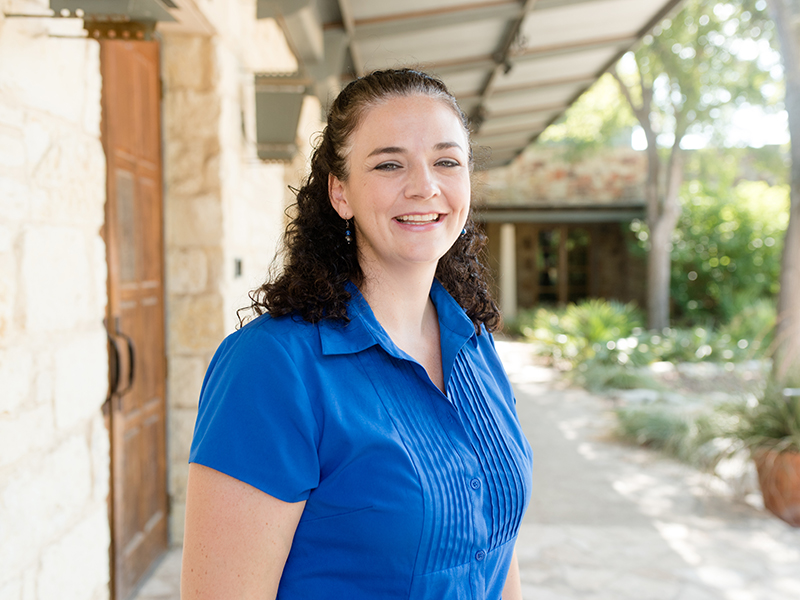Biomedical Engineers Call to End U.S. Funding Discrimination Against Black Scientists
Network of biomedical engineering academics from across the nation focus on removing this barrier to success
A national network of women deans, chairs and distinguished faculty in biomedical engineering, including from the Cockrell School of Engineering, called upon the National Institutes of Health (NIH) and other major funding agencies to address disparities in allocating support for Black researchers.
The new commentary, published this week in the journal Cell, argues that insufficient federal funding for research by Black scientists is a key issue that prevents them from equitably contributing to science and achieving their full potential.
Shelly Sakiyama-Elbert, chair of the Cockrell School’s Department of Biomedical Engineering, and biomedical engineering professor Elizabeth Cosgriff-Hernández are co-authors on the commentary, titled “Fund Black Scientists.”

Shelly Sakiyama-Elbert, chair of the Cockrell School of Engineering’s Department of Biomedical Engineering
Several studies of the allocation of NIH research funding to Black scientists over the past decade back up the arguments of the group of biomedical leaders, which includes faculty from the Cockrell School’s Department of Biomedical Engineering. Black applicant award rates for research funding have stood at about 55% of that of white principal investigators of similar academic achievement. Despite internal reviews of the reasons behind this disparity, and promises to do better, the funding gap continues.
While efforts have been made to improve the pipeline to encourage Black students to prepare for and enter careers as researchers and college and university faculty, once appointed, lack of research funding can derail these careers. Many universities consider faculty members’ ability to support their research as a key decision point for tenure and promotions. Thus, NIH funding disparities can end the careers of Black scientists. Furthermore, inadequate research funding, can discourage these scientists and cause them to leave their professions.
This means fewer Black scientists remain to serve as role models and mentors for the next generation. It also means many important research questions vital to society are not being asked, because the perspectives, creativity and knowledge of a diverse population of scientists are not being tapped. The public does not see the faces or hear the voices of Black scientific experts speaking on vital issues.
The authors of the paper make several recommendations on how research funding disparities can be eliminated. Among the steps funding agencies might take are:
- Explicitly state that racism persists in the U.S. research enterprise and that it must be expelled
- Develop federal funding institute policies to immediately achieve racial funding equity
- Incorporate diversity into research proposal scoring criteria, prioritize research teams that exemplify diversity, and diversify proposal review panels
- Train funding agency leadership and staff, and grant reviewers and recipients, to recognize and stop racism

Elizabeth Cosgriff-Hernández, professor in the Cockrell School of Engineering’s Department of Biomedical Engineering
The Cell paper authors issued a call to action to all members of their profession: “Scientific colleagues, let us each use our voices and actions to now overcome our profession’s racism and serve as antiracist agents of change.”
They urged individual scientists and universities, colleges and institutes to recognize how they might be unintentionally contributing to systemic racism in their academic roles. Academia, they write, must also move forward from statements of solidarity to transformative organizational changes.
The authors also called on the private sector, including philanthropists, industrial leaders whose companies depend on scientific innovation, foundations and professional societies to help offset racial disparities in research funding. Together, private and public sectors can enhance the creativity and innovation of their science and bring forward the greater good of society by funding innovative ideas and robust talents of Black scientists.
The paper’s additional co-authors are: Omolola Eniola-Adefeso, University of Michigan; Kelly R. Stevens, University of Washington; Kristyn S. Masters, University of Wisconsin-Madison; Princess Imoukhuede and Lori A. Setton, Washington University St. Louis; Karmella A. Haynes, Emory University; Muyinatu A. Lediju Bell, Johns Hopkins University; Padmini Rangamani and Karen Christman, University of California, San Diego; Stacey Finley, University of Southern California; Rebecca Willits and Abigail N. Koppes, Northeastern University; Naomi Chesler, University of California, Irvine; Josephine Allen, University of Florida, Gainesville; Joyce N. Wong, Boston University; and Hana El-Samad and Tejal Desai, University of California-San Francisco.
